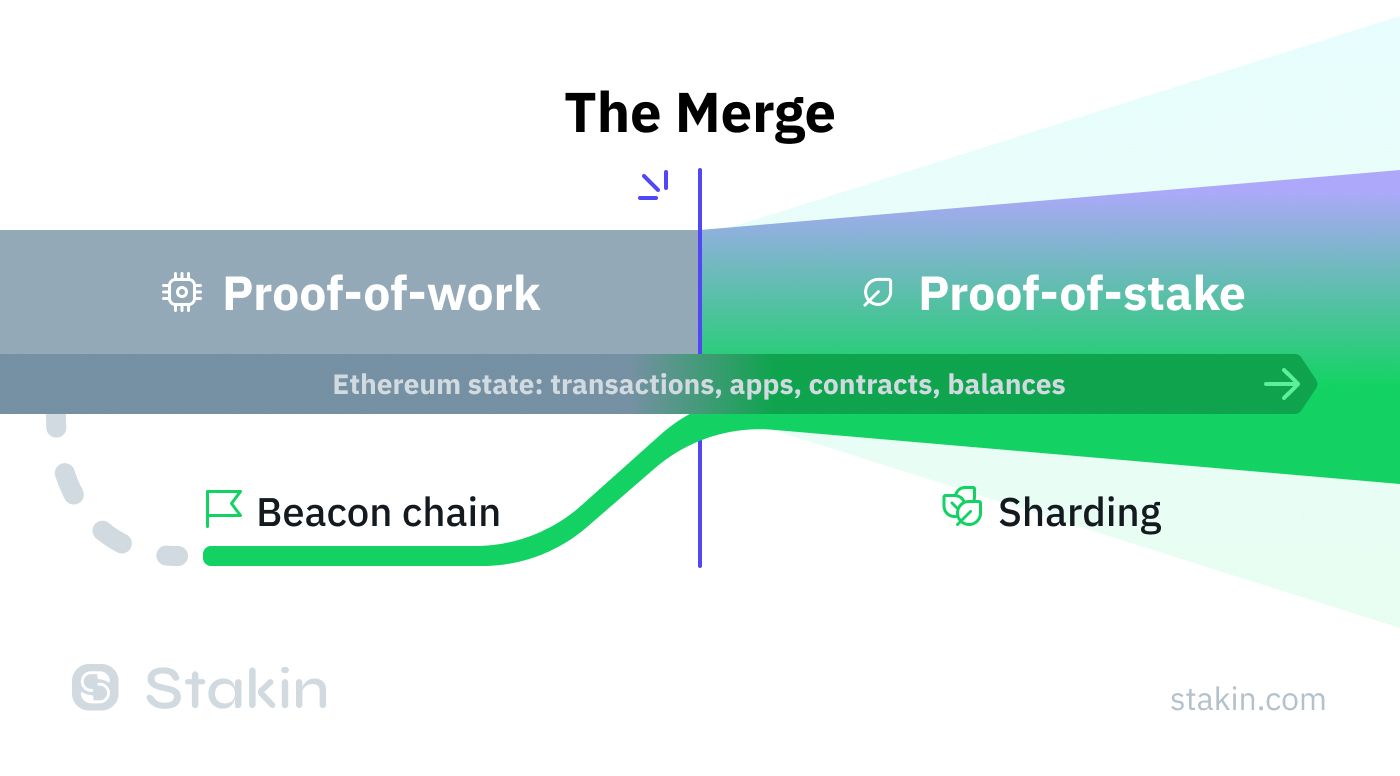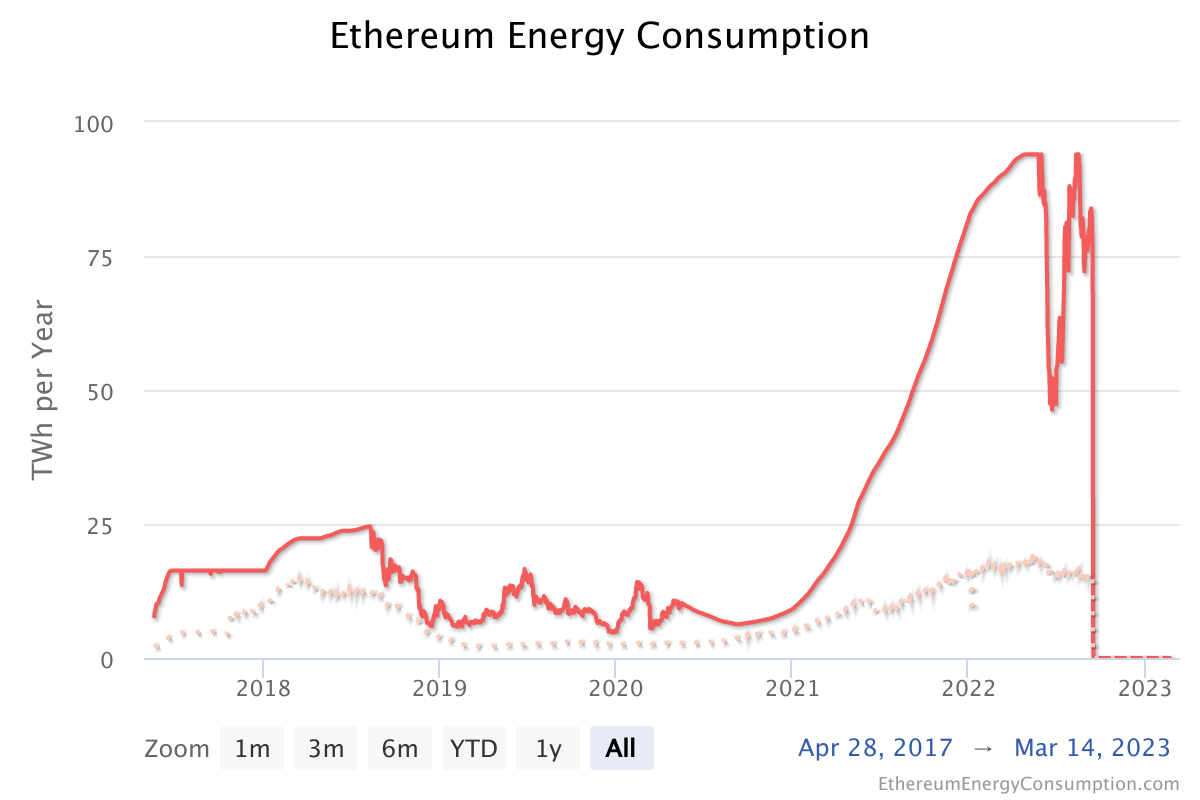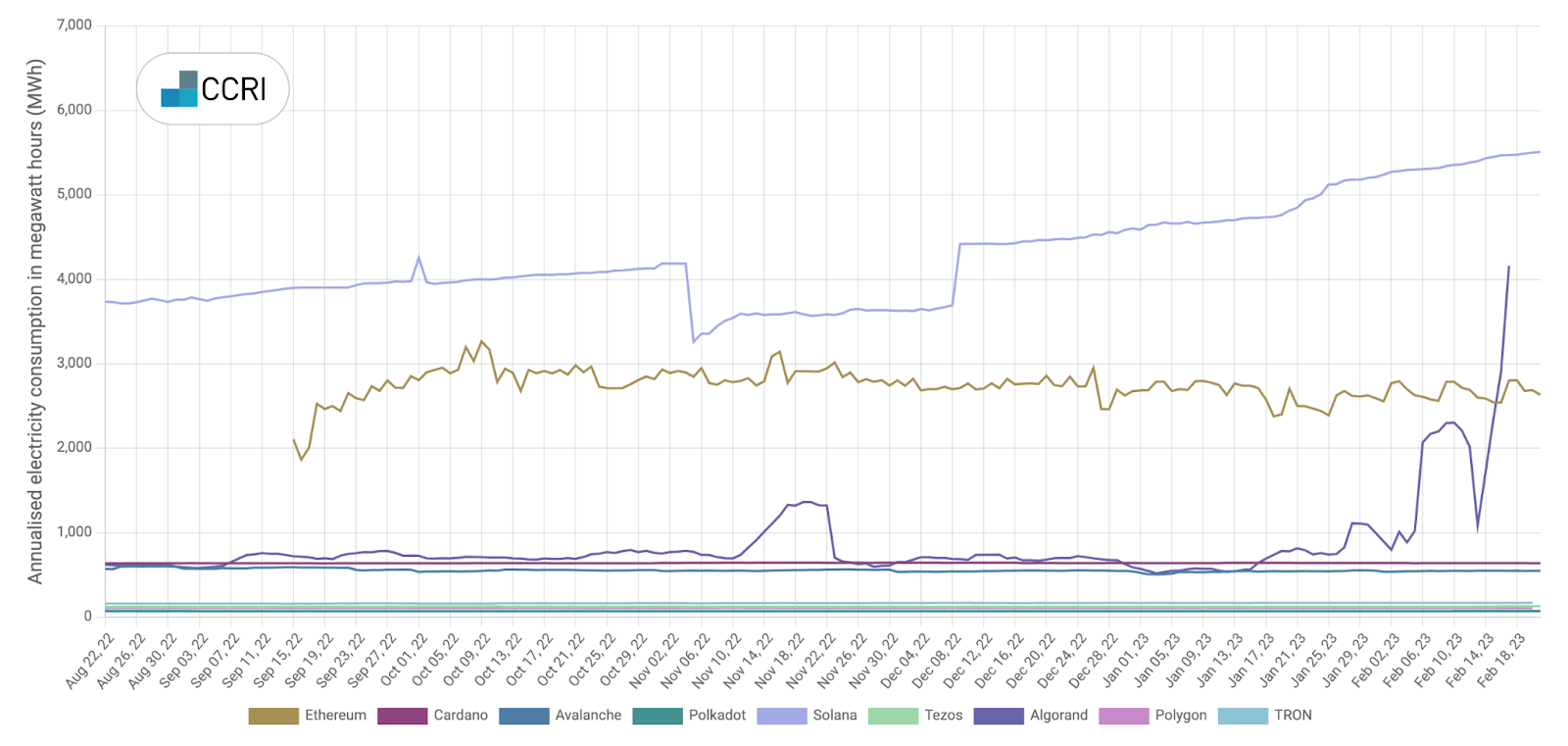Why green blockchain initiatives should be recognized and how they can make a difference.
The impact of blockchain technology on the environment has been a topic of discussion on and off-chain for some time. When discussing the environmental impact of blockchain, the most commonly discussed topics are energy use and carbon emissions. It all began with Bitcoin, the Proof-of-Work blockchain network secured through mining. For those who are unfamiliar, Bitcoin mining is the process of creating new Bitcoins and verifying transactions on the blockchain. Miners compete to solve complex mathematical problems; the first to solve them is rewarded with a certain amount of Bitcoin. Mining requires high computational power and, thus, a high energy consumption.
A report of the Bitcoin Mining Council (BMC) for Q2 2022, representing 51 of the world's largest Bitcoin mining companies, states that Bitcoin has seen a 41% yearly increase in energy consumption year on year (YoY). Furthermore, according to the report, Bitcoin mining consumes 0.16% of global energy production and emits 0.10% of the world's carbon emissions. Of course, this is only a tiny portion of the Bitcoin miners, and other Proof-of-Work networks also utilize a lot of energy to continue running. Better options and solutions were needed.
Enter the Ethereum Merge, completed in September 2022, and one of the most significant upgrades in blockchain history (so far). The Merge was a transformative update that represented joining the existing execution layer (PoW) with the Beacon Chain, its new PoS consensus layer. In December 2020, the Beacon Chain introduced staking on Ethereum, essentially a ledger of accounts that conducts and coordinates the network of stakers. By switching to PoS, the Merge eliminated the need for many energy-intensive mining computers.

Before the Merge upgrade, the energy consumption of Ethereum ranged from 46.31 terawatt hour (TWh) per year to 93.98 TWh per year (as seen in the graph below). The Merge cut energy submissions by 99,99%.

Interestingly, with the Merge, other well-known chains, such as Polgyon, also decreased their energy consumption. The network has cut 60,000 tonnes of emissions since Ethereum's move to PoS, reducing the annual total to just 56.22 tCO2e.
The Crypto Carbon Ratings Institute (CCRI) estimates the annual CO2 emissions and electricity consumption of 9 selected Proof-of-Stake networks; you can find an overview here. The Electricity Consumption can be seen in the graph below.

Interestingly, the Proof-of-Stake blockchain shown to have the highest estimated energy emissions currently is Solana, with 5,508.28 MWh. Remember that this goes solely about the actual blockchain and its operations. A close second is Algorand with 4,160.83 MWh, after which Ethereum follows 2,633.13 MWh. All that shows that there's much to say about green blockchain initiatives that are being created across different ecosystems.
Why Blockchain Initiatives Can Make a Difference
Carbon offset marketplaces have emerged as a promising solution for addressing climate change and reducing carbon emissions. These platforms aim to provide economic incentives for reducing carbon emissions by allowing individuals and businesses to buy and sell carbon credits. However, the traditional carbon market has faced several challenges, including double counting, lack of transparency, and the involvement of intermediaries.
To address these challenges, ReFi (Regenerative Finance) and other green blockchain initiatives are providing a new platform for buyers and sellers to interact directly, eliminating intermediaries and increasing transparency. This new approach can help create a thriving liquid market for carbon credits and other sustainable solutions, allowing stakeholders to work together towards a greener future.
For example, ReFi employs financial resources as tools to regenerate natural habitats, assist communities, and address systemic issues. The environmental and social impacts of most financial institutions' lending practices are often ignored. Unlike traditional finance, ReFi considers all stakeholders' perspectives in decision-making, redistributing economic control to organizations that have invested the most and are most likely to face the consequences.
For a while now, blockchain has unlocked new sources of financing and mobilized existing industries; the same can be done for carbon reduction. Blockchain could lower the cost of capital for infrastructure projects, improving liquidity, transparency, and broader access to finance. Moreover, the technology brings visibility to sustainability goals by enabling tracking data and information on renewable energy and green projects. Blockchain-enabled platforms are a way to standardize data, assess asset performance, and enhance compliance, which could be further expanded with data intelligence and AI. Finally, blockchain enhances awareness and access by being a transaction-enabling infrastructure. But blockchain's green initiatives are way beyond monitoring and transparency. The technology can address significant issues and possibilities in assisting mitigation and adaptation operations, particularly in the energy, transportation, and agriculture industries. Blockchain can help make other industries greener, and it, thus, makes a difference as well.
DISCLAIMER: This is not financial advice. Staking, delegation, and cryptocurrencies involve a high degree of risk, and there is always the possibility of loss, including the failure of all staked digital assets. Additionally, delegators are at risk of slashing in case of security or liveness faults on some protocols. We advise you to do your due diligence before choosing a validator.


Join the conversation